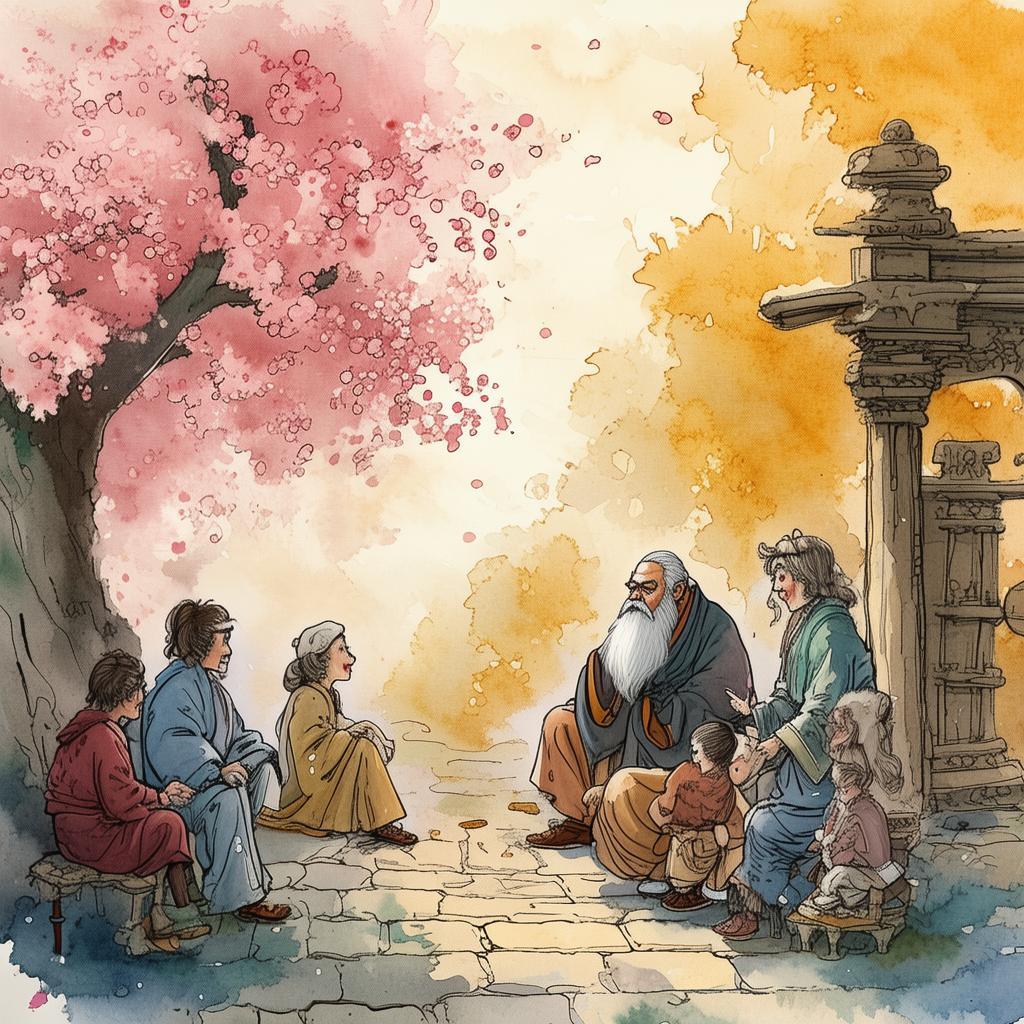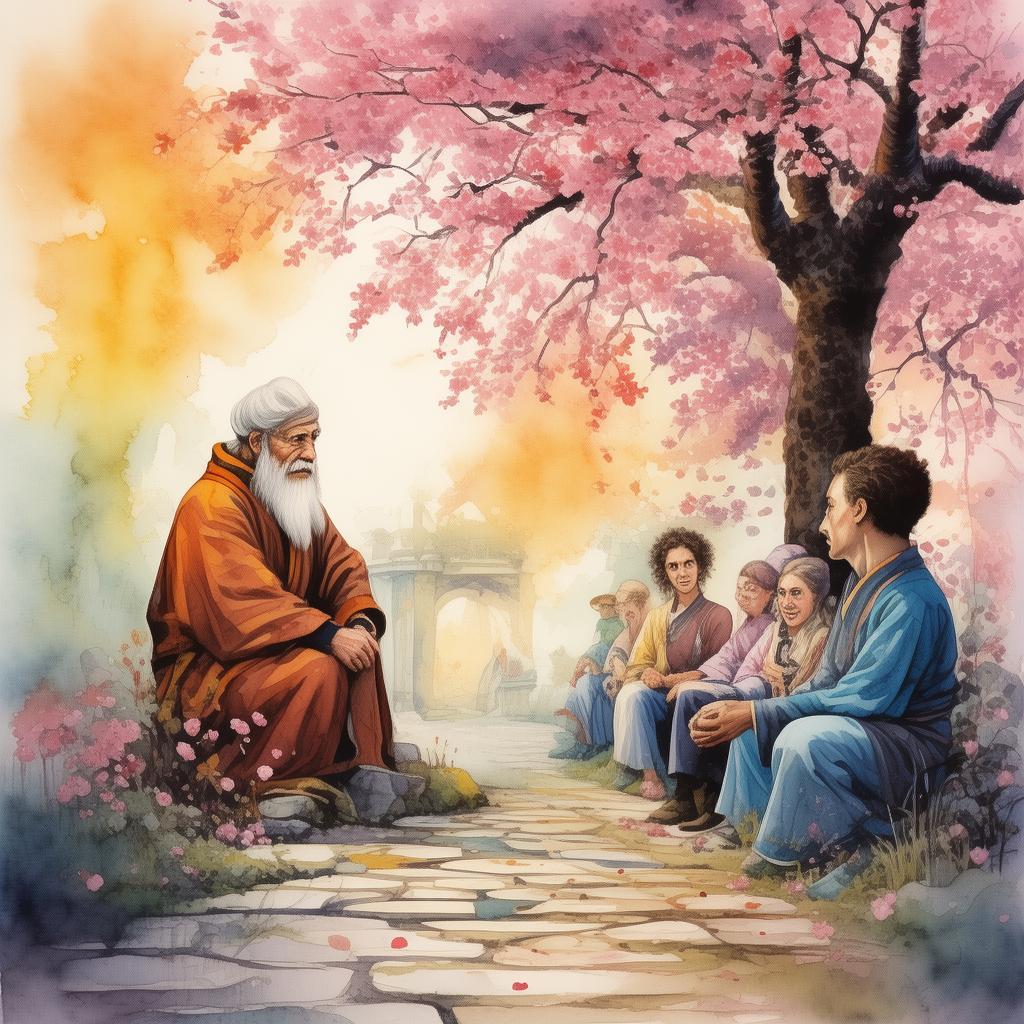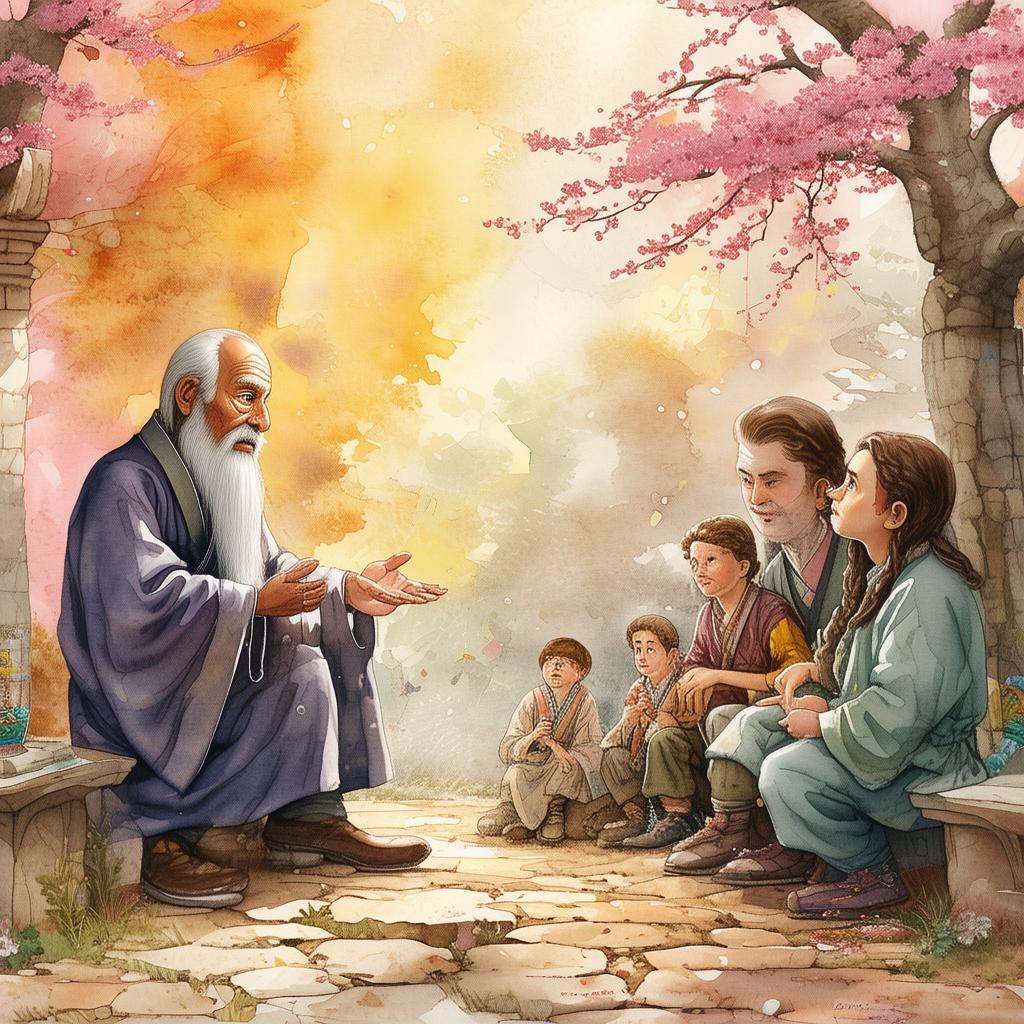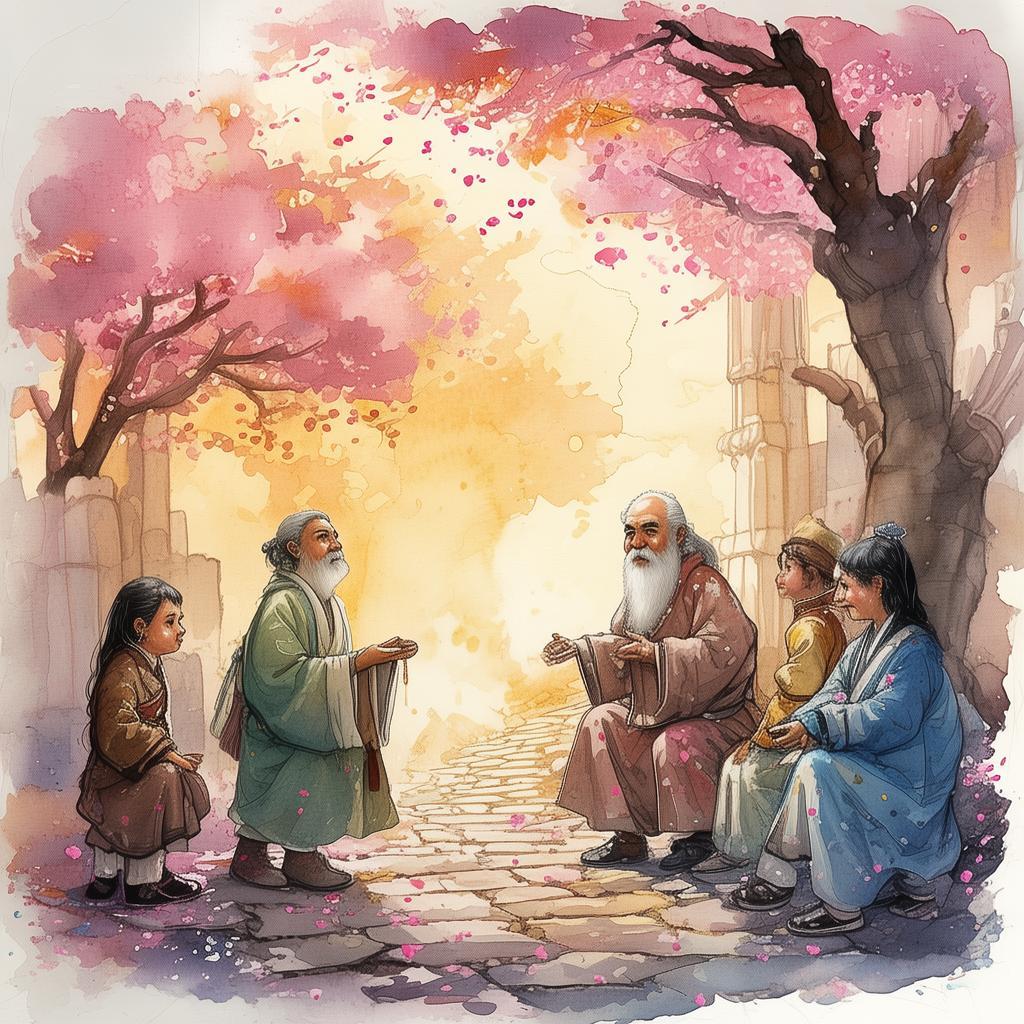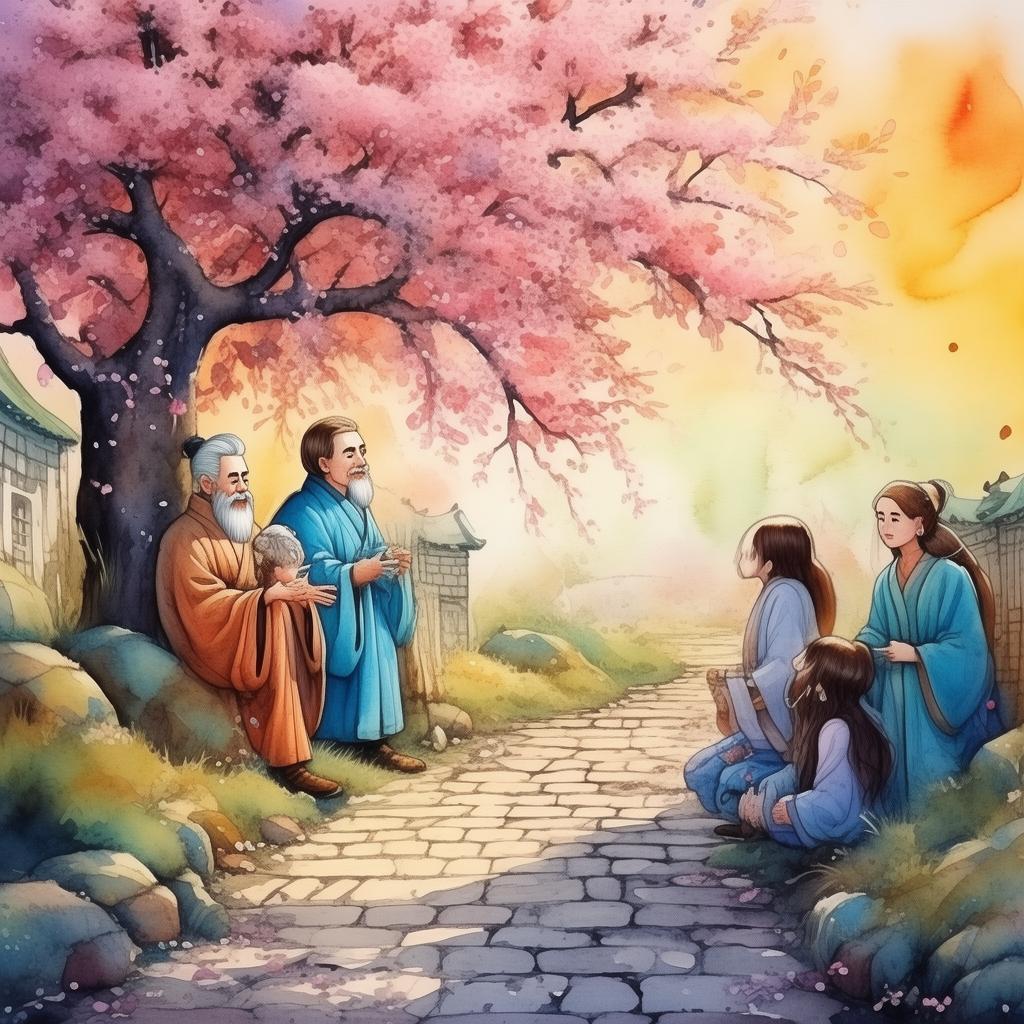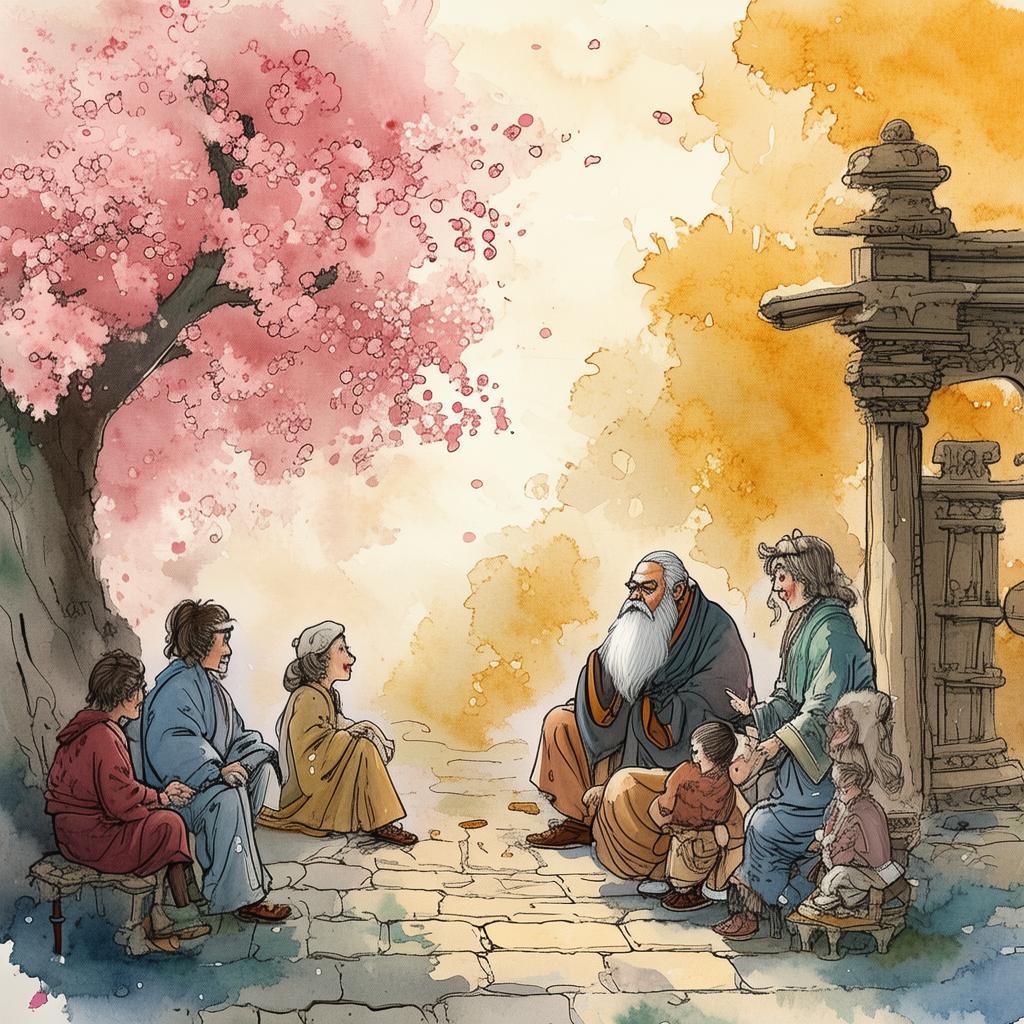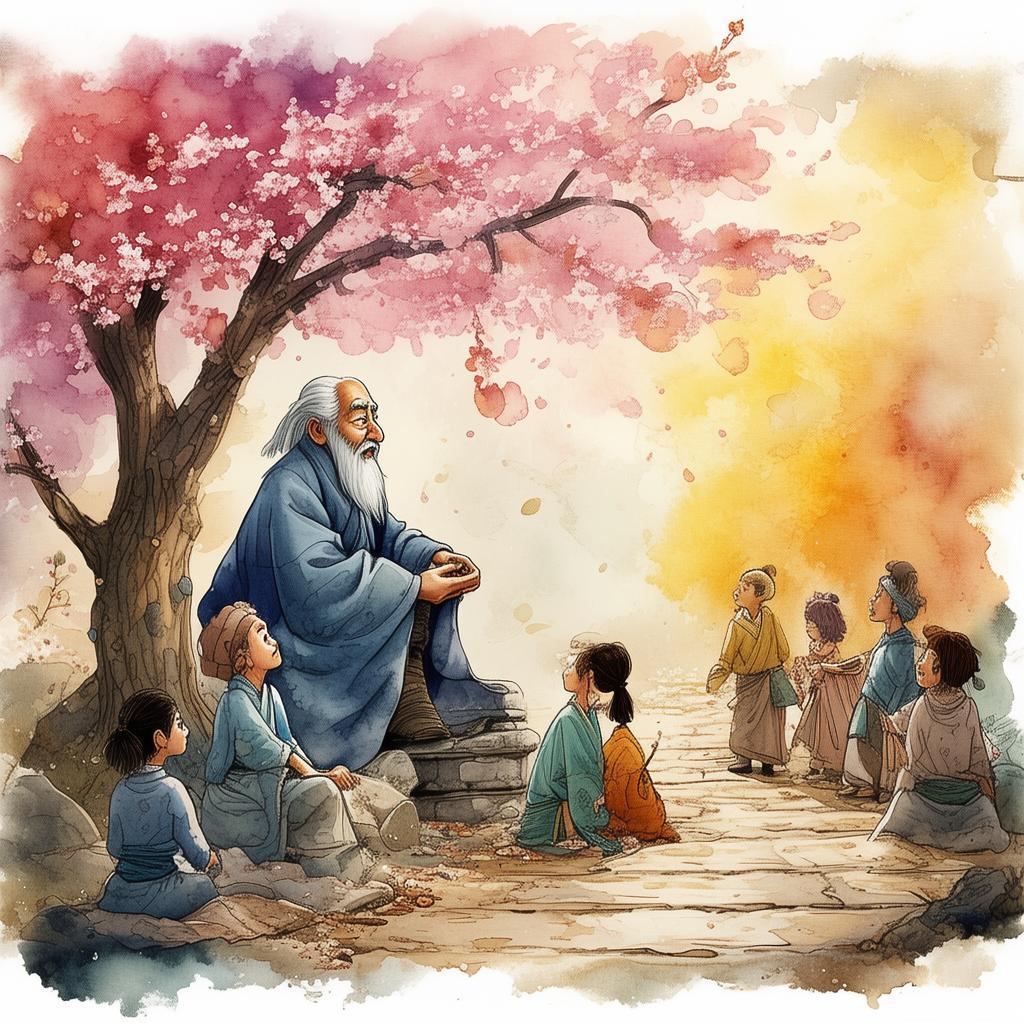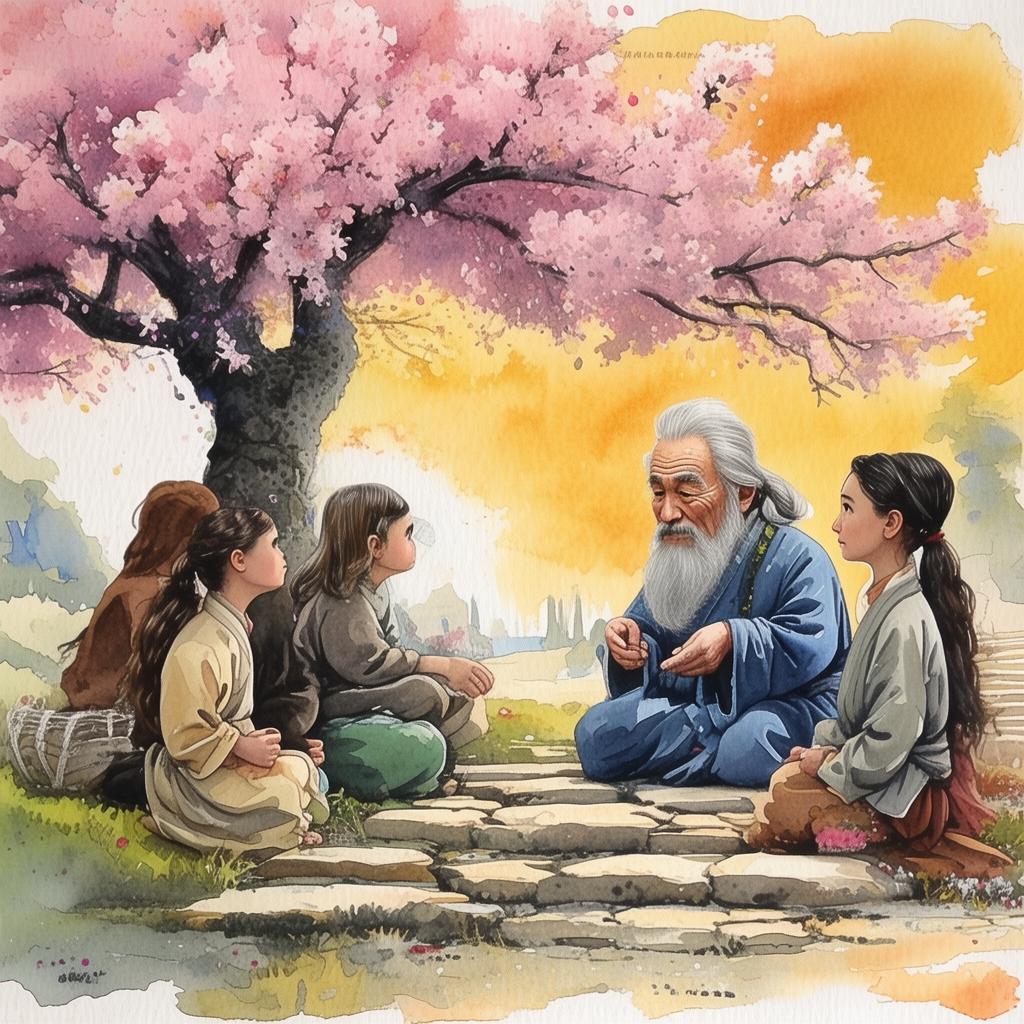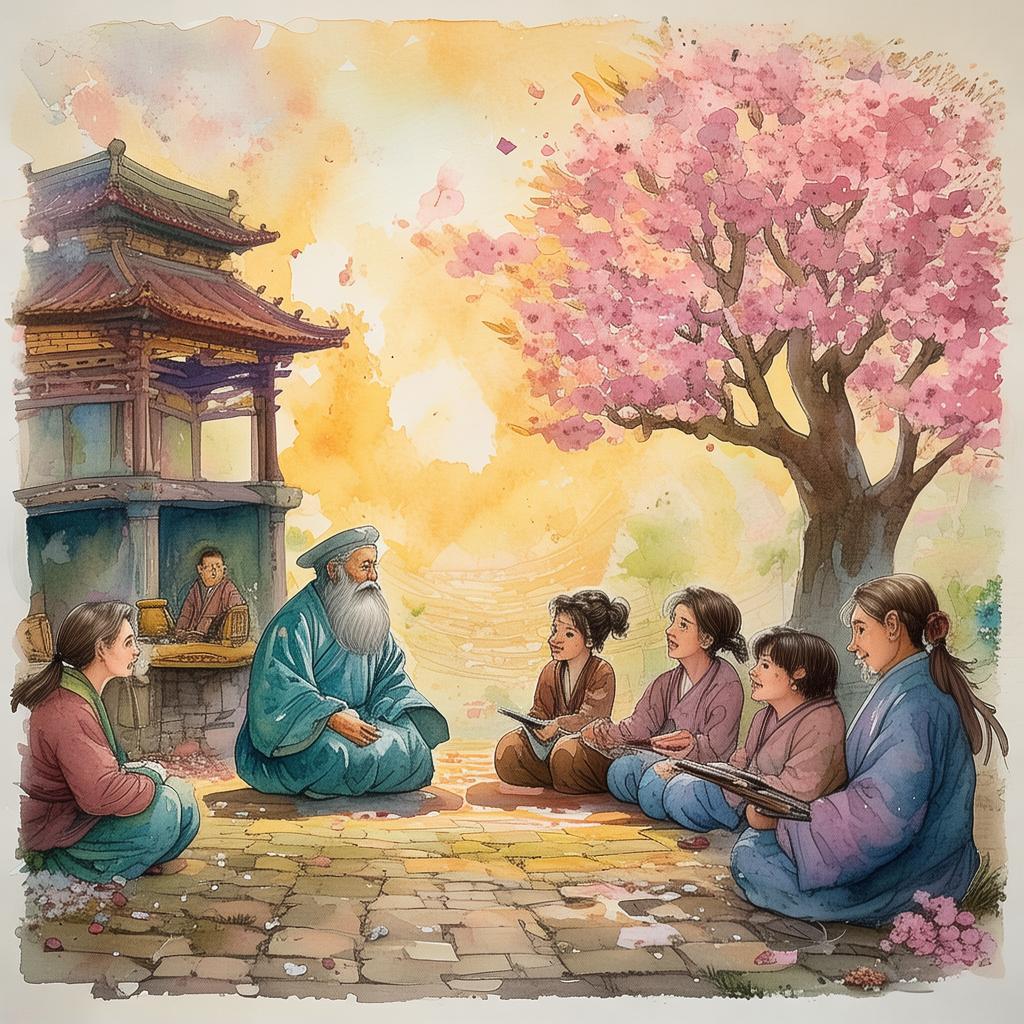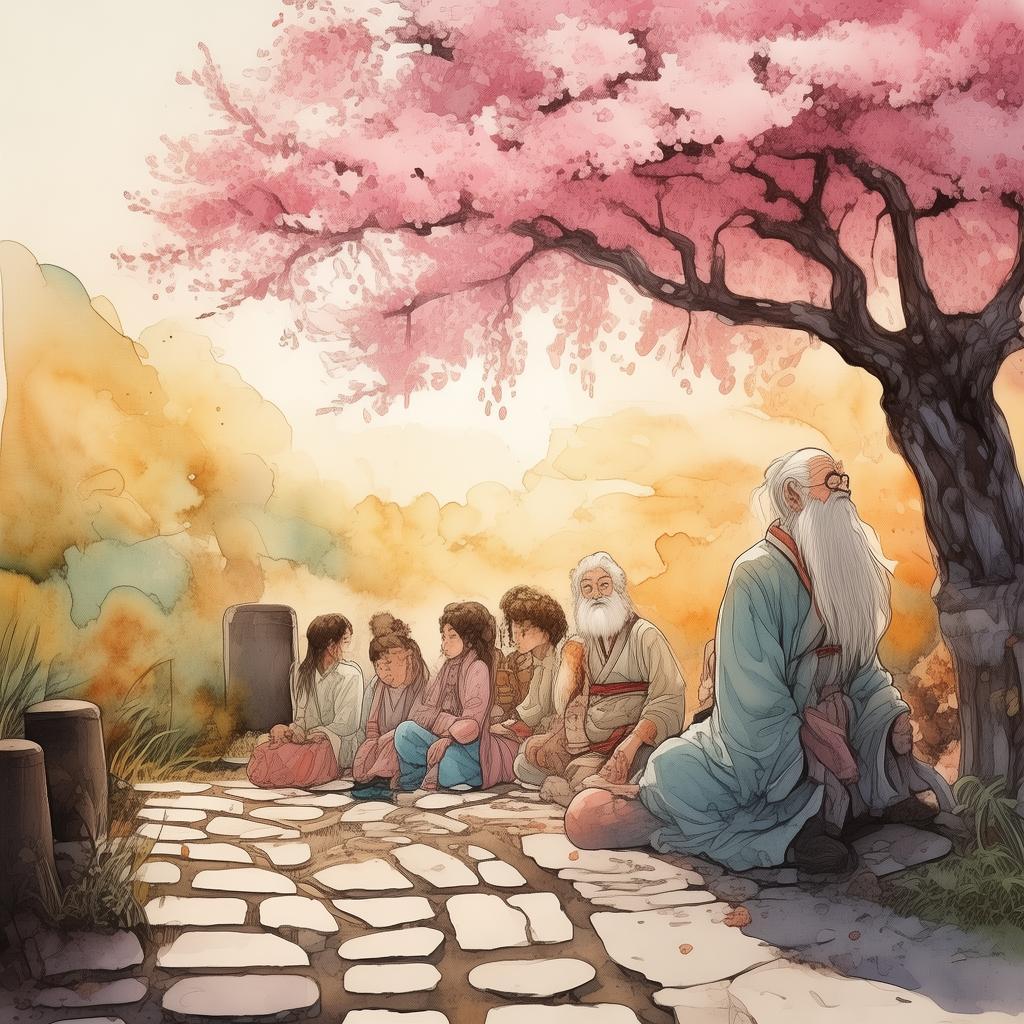The Last Harvest: A Tale of the Dying Year
The village of Jingli lay nestled between rolling hills and a winding river, where the air grew crisp with the onset of autumn. Ming, a young farmer with a heart as vast as the fields he tilled, was preparing for the last harvest of the year. The villagers spoke of the equinox as the dying year, a time when the earth's bounty waned, and the cycle of life began to slow.
As the days grew shorter, Ming found himself haunted by the whispers of his past. His father, a revered farmer, had passed away when Ming was but a child, leaving behind a legacy of wisdom and a deep connection to the land. Ming's mother, a woman of strong will and compassion, had instilled in him the importance of the harvest, teaching him the ancient ways of farming.
The equinox approached, and with it, the annual festival of the Last Harvest. It was a time of reflection, a time to honor the earth and the ancestors who had come before. Ming, now the head of the family, felt the weight of tradition pressing down on him. He knew that to lead the festival properly, he must first understand his father's true legacy.
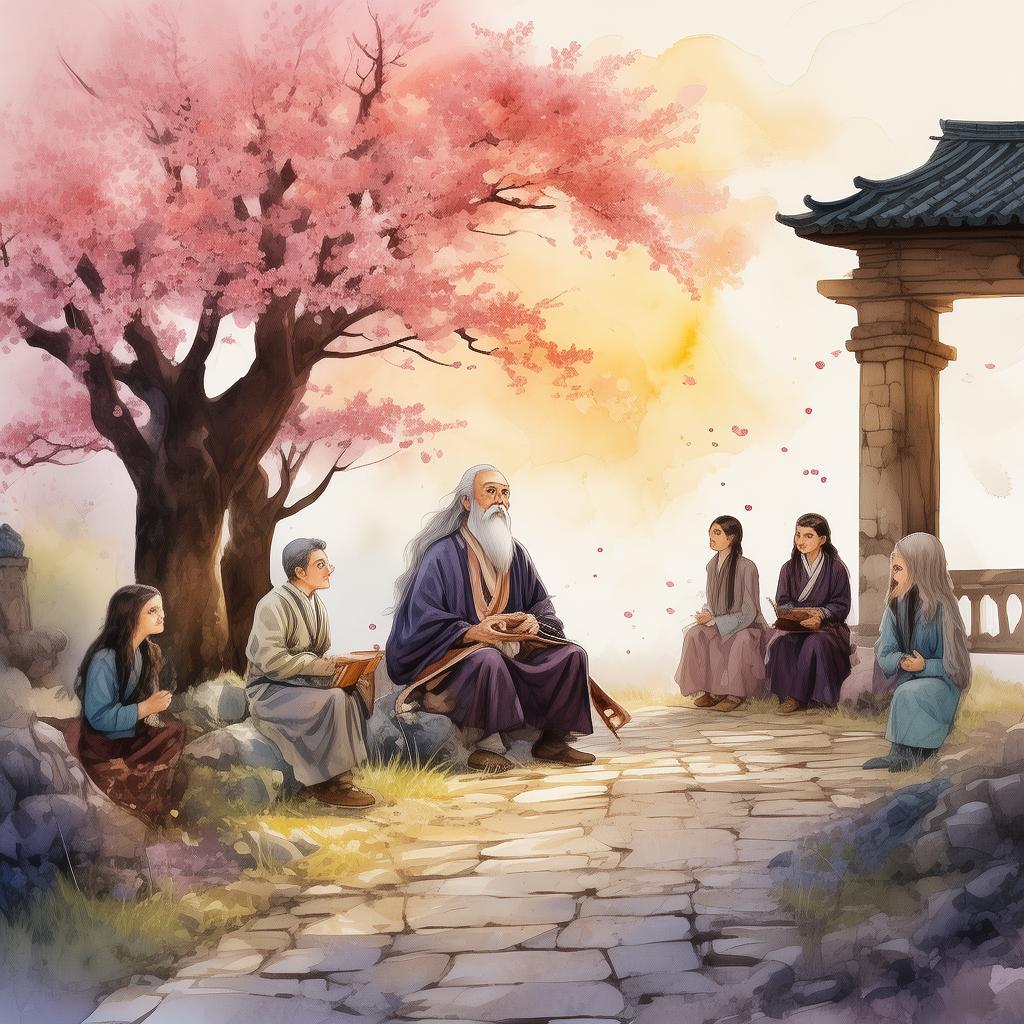
The night before the festival, Ming sat by the river, his thoughts adrift on the water's surface. He remembered the stories his father used to tell, of the first harvests and the old ways of farming. The river whispered secrets of the past, and Ming felt a strange connection to the earth beneath his feet.
As he meditated, Ming's eyes were drawn to an ancient book hidden in a chest in the attic. The book, bound in leather and filled with intricate illustrations, spoke of the original teachings of the village's founders. It revealed that the true essence of the Last Harvest was not just about the physical harvest of crops, but about the harvest of wisdom, love, and respect for the land.
The next morning, Ming stood before the village, his heart pounding with anticipation. The festival was to begin, and he had decided to challenge the old ways. He would not just celebrate the physical harvest, but also the spiritual one. He would share the knowledge from the ancient book with the villagers, teaching them the true meaning of the Last Harvest.
The festival commenced with the traditional rituals, but Ming's speech was different. He spoke of the land, of the ancestors, and of the wisdom that had been passed down through generations. The villagers listened, their eyes wide with wonder and respect. Ming felt a profound connection to his father, and he knew that he was continuing his legacy in a new way.
As the sun dipped below the horizon, marking the end of the dying year, Ming stood amidst the harvested fields. He looked up at the stars, feeling a sense of peace and fulfillment. He had chosen change, and in doing so, he had honored his father's legacy.
The next morning, as the first light of dawn touched the horizon, Ming walked through the fields, his heart full of gratitude. The dying year had brought him a new understanding, a new way to connect with the earth and his ancestors. And as the first rays of sunlight kissed the earth, he knew that the cycle of life would continue, and the land would thrive once more.
The Last Harvest: A Tale of the Dying Year was not just a story of a single event, but a tale of transformation, legacy, and the enduring power of love and respect for the earth. Ming's journey had come full circle, and he had found his place in the tapestry of his village's history.
✨ Original Statement ✨
All articles published on this website (including but not limited to text, images, videos, and other content) are original or authorized for reposting and are protected by relevant laws. Without the explicit written permission of this website, no individual or organization may copy, modify, repost, or use the content for commercial purposes.
If you need to quote or cooperate, please contact this site for authorization. We reserve the right to pursue legal responsibility for any unauthorized use.
Hereby declared.
